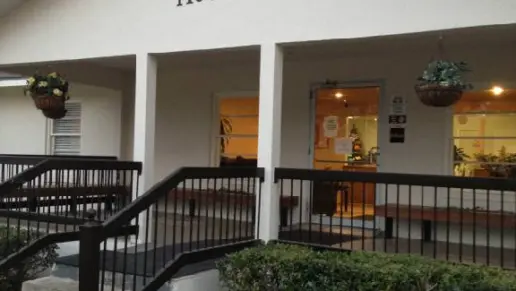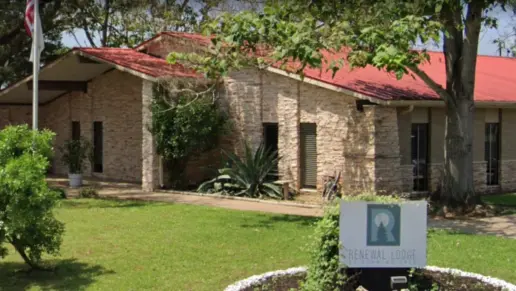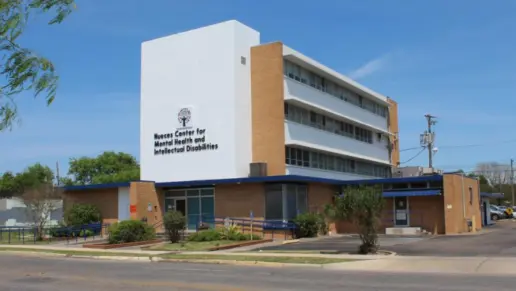Visiting from overseas, my fiance was able to guest dose at this clinic. All of the staff made us feel welcome and respected. Definitely the best methadone clinic we've visited and everyone was so kind and made the experience painfree. Getting the paperwork for guest dosing ...
About Greater Therapy Centers Physical Therapy in McKinney, TX
MedPro Treatment Centers is a drug rehab program specializing in opiate addiction. Their medication assisted treatment (MAT) and outpatient counseling are available to adults, with specialized services available for those who are pregnant. MedPro uses methadone as a means to manage cravings during treatment. They're Based out of McKinney, Texas.
MAT is the use of specific FDA-approved methadone to reduce a client’s withdrawal symptoms and help them manage cravings. This allows them to focus more on their recovery. Outpatient counseling supports MAT by providing evidence-based treatment.
MedPro provides individualized outpatient treatment options for each client. These evidence-based methods allow clients to understand the nature of addiction and help them develop effective coping strategies for lifelong sobriety. Services offered include individual and group counseling and peer support.
MedPro accepts multiple insurance plans, including Medicare, Medicaid, and private insurance plans that may include Cigna, Humana, Blue Cross Blue Shield, Beacon, United Healthcare, and more. Clients are urged to confirm coverage before joining a treatment program, as out of network benefits may vary.
Latest Reviews
Gallery
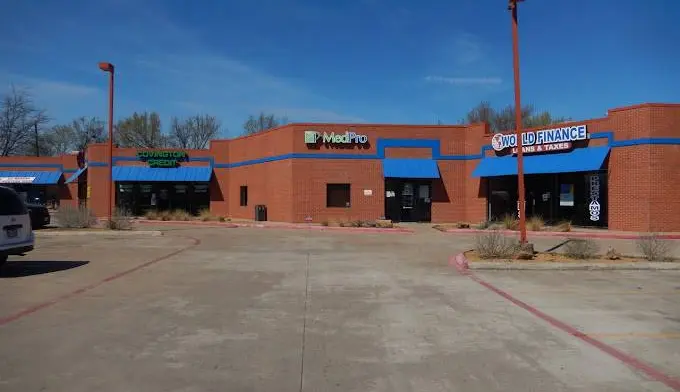
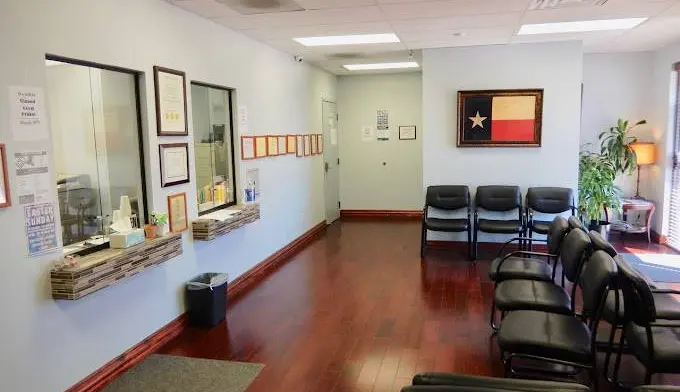
Location
Accepted Insurance
Other Forms of Payment
Private insurance refers to any kind of healthcare coverage that isn't from the state or federal government. This includes individual and family plans offered by an employer or purchased from the Insurance Marketplace. Every plan will have different requirements and out of pocket costs so be sure to get the full details before you start treatment.
Self-pay involves paying for treatment out of your own pocket. You can use savings or credit, get a personal loan, or receive help from family and friends to fund your treatment. If you don't have insurance or your insurance plan doesn't cover a specific program, self-pay can help ensure you still get the care you need.
Financial aid can take many forms. Centers may have grants or scholarships available to clients who meet eligibility requirements. Programs that receive SAMHSA grants may have financial aid available for those who need treatment as well. Grants and scholarships can help you pai for treatment without having to repay.
Medicaid is a state based program that helps lower-income individuals and families pay for healthcare. Medicaid covers addiction treatment so those enrolled can use their coverage to pay for rehab. When a program accepts Medicaid the client often pays very little or nothing out of their own pocket.
Medicare is a federal program that provides health insurance for those 65 and older. It also serves people under 65 with chronic and disabling health challenges. To use Medicare for addiction treatment you need to find a program that accepts Medicare and is in network with your plan. Out of pocket costs and preauthorization requirements vary, so always check with your provider.
Addiction Treatments
Levels of Care
Treatments
The goal of treatment for alcoholism is abstinence. Those with poor social support, poor motivation, or psychiatric disorders tend to relapse within a few years of treatment. For these people, success is measured by longer periods of abstinence, reduced use of alcohol, better health, and improved social functioning. Recovery and Maintenance are usually based on 12 step programs and AA meetings.
During rehab in Texas, you'll deal with underlying issues that contribute to addiction. By addressing these challenges and learning healthy ways to cope with them, you'll develop strategies that help you live a drug-free lifestyle.
Opioid rehabs specialize in supporting those recovering from opioid addiction. They treat those suffering from addiction to illegal opioids like heroin, as well as prescription drugs like oxycodone. These centers typically combine both physical as well as mental and emotional support to help stop addiction. Physical support often includes medical detox and subsequent medical support (including medication), and mental support includes in-depth therapy to address the underlying causes of addiction.
Substance rehabs focus on helping individuals recover from substance abuse, including alcohol and drug addiction (both illegal and prescription drugs). They often include the opportunity to engage in both individual as well as group therapy.
Programs




Clinical Services
Group therapy is any therapeutic work that happens in a group (not one-on-one). There are a number of different group therapy modalities, including support groups, experiential therapy, psycho-education, and more. Group therapy involves treatment as well as processing interaction between group members.
Accreditations

The Substance Abuse and Mental Health Services Administration (SAMHSA) is a branch of the U.S. Department of Health and Human Services. Established in 1992 by congress, SAMHSA's mission is to reduce the impact of substance abuse and mental illness on American's communities.
SAMHSA Listed: Yes
Contact Information
2309 Virginia Parkway
Suite 400
Mckinney TX, 75071





